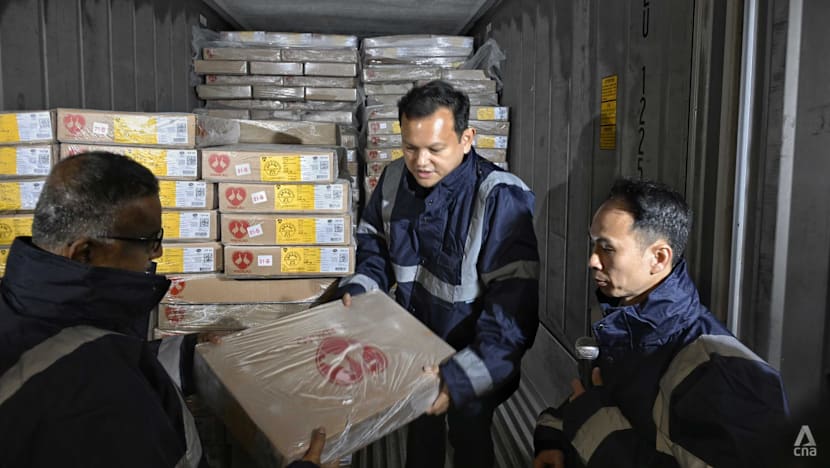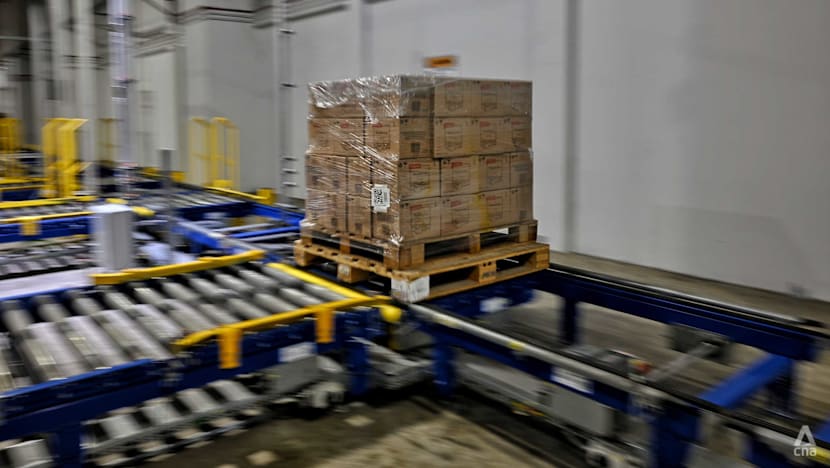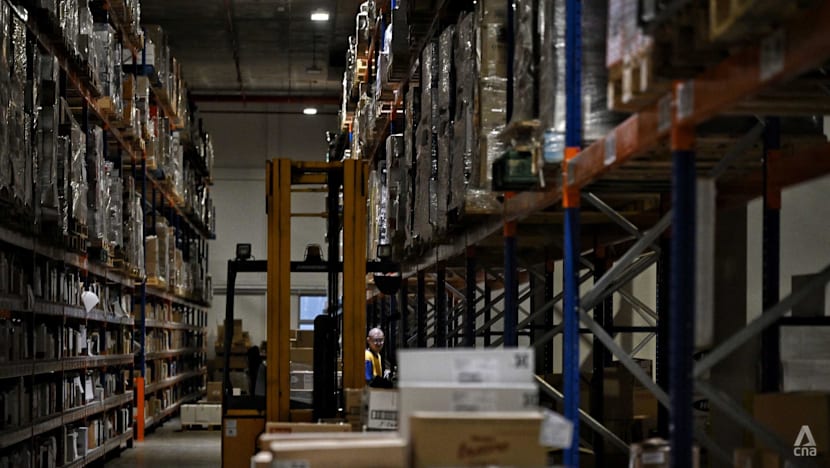Balance must be struck between stockpiling for Singapore's food security and taxpayer costs: Zaqy Mohamad
"It's a balance between how much government stockpiles because that also means cost to us, cost to taxpayers," said the Senior Minister of State for Sustainability and the Environment.

Senior Minister of State for Sustainability and the Environment Zaqy Mohamad inspects a box of frozen chicken in a cold storage container at a warehouse on Oct 22, 2025. (Photo: CNA/Wallace Woon)

This audio is generated by an AI tool.
SINGAPORE: As Singapore prepares for the next emergency by stockpiling essential food items, it also has to find a balance between ensuring food security and keeping storage costs low, said Senior Minister of State for Sustainability and the Environment Zaqy Mohamad.
Otherwise, stockpiling too much food could lead to waste, and storage costs could also go up for taxpayers, he added.
Mr Zaqy was speaking to reporters during a visit to a stockpile warehouse operated by Singapore supply chain and logistics company YCH Group on Wednesday (Oct 22), where he was given a tour of the automated storage and retrieval system and cold room facilities.
Earlier this year, Singapore passed a food safety and security law which prescribed a minimum stockholding requirement for rice importers to stockpile rice.
The law also enables Singapore's stockpiling measures to include more food types apart from rice, as other essential food items or agri-food products may be subject to stockpiling requirements if the need arises in the future.


Noting that the national stockpile now goes beyond rice to include proteins and fibre-rich foods, Mr Zaqy said Singapore is sticking to mandating stockpiling requirements only for rice for now.
On chicken for example, he said it was "not cheap" to store the protein as it needs to be kept frozen.
Whether chicken or other food items are subject to stricter requirements will depend on the risk assessment of current needs, he said.
More stockpiling can lead to more costs incurred. "It's a balance between how much the government stockpiles because that also means cost to us, cost to taxpayers," added Mr Zaqy.
STOCKPILING INVOLVES PARTNERSHIPS
Apart from YCH, the government works "very closely" with the industry to ensure sufficient supply, safe access to and quality management of stockpiled items.
The aim is to evolve the stockpiling strategy to cover today's needs and look out for potential threats or destruction that may come ahead, said Mr Zaqy.
He then noted how such threats can come in various forms, such as climate change affecting agriculture, pandemics and geopolitical issues that can affect supply chains.
Beyond stockpiling, growing local and having food production in Singapore is also part of the country's food resilience strategy, Mr Zaqy added.
It is also important to ensure Singapore has a diversified and varied list of providers and suppliers from around the world in terms of cost and supply.
This was where global partnerships come in, to access markets rather than just importing from one source.
Earlier this month, Singapore and New Zealand made a "first-of-its-kind" agreement to trade essential goods in times of crisis.
The agreement provides reassurance that both sides can continue to receive essential supplies during supply chain disruptions.














